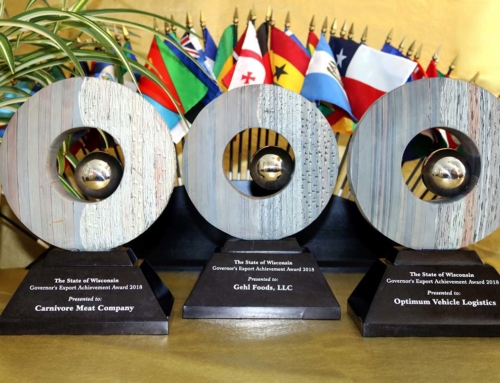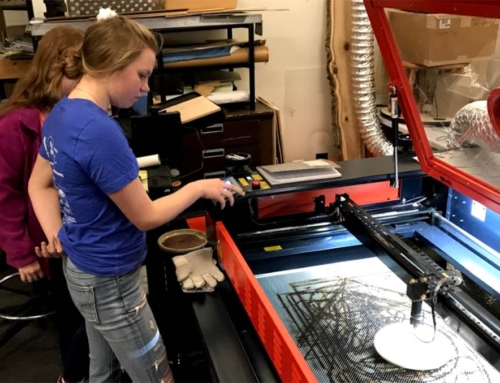More than a game: Wisconsin positioning itself to be a hub for game development
The state of Wisconsin thrives in a number of key sectors: manufacturing, biohealth, agriculture, water technology and more. In the near future, game development wants to also be added to that list.
 “Our mission is to promote Wisconsin as a premier game development hub, on par with gaming hotbeds like Austin, Portland and North Carolina,” says Jennifer Javornik, who co-directs the recently renamed Wisconsin Games Alliance (WGA) with Tim Gerritsen, head of studio at Fantasy Flight Interactive. “We have a similar makeup [to those places] and all the same elements for success.”
“Our mission is to promote Wisconsin as a premier game development hub, on par with gaming hotbeds like Austin, Portland and North Carolina,” says Jennifer Javornik, who co-directs the recently renamed Wisconsin Games Alliance (WGA) with Tim Gerritsen, head of studio at Fantasy Flight Interactive. “We have a similar makeup [to those places] and all the same elements for success.”
Wisconsin’s game development (or gamedev) industry had been bubbling just under the surface for years, supported by the state’s high number in STEAM (science, technology, engineering, art and math) graduates, college game-development programs in Madison, Milwaukee, Stout and Whitewater, and UW-Madison’s commitment to games-for-learning research and development. As the platforms for games have expanded from traditional consoles to smartphones, web browsers and wearables, so has the industry shifted from big international studios to smaller local shops and independent developers, creating a prime environment for Wisconsin’s own gamedev industry to rise in the ranks.
“We have good schools and smart, creative people here,” says Javornik, who is also vice president of sales for Filament Games. “Combined with how the industry has grown, that has brought all the right ingredients together in Wisconsin.”
The state’s gamedev industry has also benefited from what Javornik calls the gaming industry’s version of the “Epic Effect”—the Raven Effect—so named for Raven Software, the well-known, pioneering company that helped put Madison and Wisconsin on the gaming map. Based in Madison, Raven Software, which is now owned by Activision, has numerous award-winning games and is a major contributor to the “Call of Duty” game franchise.
“Just like Epic Systems, [Raven has] grown and developed talent who’ve gone on to create their own game startups or freelance. That has had a fantastic multiplier effect for the industry and economy.”
However, the industry didn’t know the extent of its strength until August 2014, when Wisconsin gamedev leaders, along with the Madison Region Economic Partnership (MadREP), brought gaming companies together over drinks. From there, the Madison Games Alliance was formed, which became the WGA in May to better reflect the statewide nature of the group’s membership and the industry’s reach.
One key element of Wisconsin’s gamedev strength is its breadth.
“The beauty is that we have all different kinds of games,” says Javornik. “These companies are literally covering the entire span of the market.”
Wisconsin’s studios and developers, she adds, are making AAA games like “Call of Duty” and “Lost Within”; mobile games, including “Dragon Soul” and Prune; educational video games like “Win the White House”; indie games like “Race the Sun”; theme park games like “MagiQuest”; and cross-platform titles like “Vendetta Online”. There are also virtual reality (VR) and augmented reality (AR) titles in the works. These games are self-published, developed in partnership with publishers or made on a contract basis.
Another element is the talent. WGA’s mission is to grow and promote the area as a premier hub for video game development both domestically and abroad, in part by growing, attracting and retaining top industry talent that is as diverse as the people who play the games developed here.
“We have global-level talent here, and we’re working on a variety of things to both keep them here and to get new talent to move here,” says Javornik. “There are tons of opportunities to be part of.”
One step in achieving this is getting more recognition for the state’s gamedev industry, which starts with a comprehensive inventory of all the studios and developers in the state. “The more fully we can paint that picture,” says Javornik, “the stronger our story.”
Another step is to elevate the industry in the Midwest as a whole with the launch of its new professional development conference for video game developers, M+DEV, which will bring together some of the brightest minds in game development. This includes renowned “Deus Ex” and “Epic Mickey” designer Warren Spector, who will keynote the event, which is scheduled for Friday, Oct. 27 at Madison’s Alliant Energy Center; find details online.
Ultimately, Javornik and WGA would like to see gamedev develop into a full center of excellence in Wisconsin, bringing together the state’s gamedev talent with computer hardware manufacturers, chip makers and other related industries.
“We want to be more than a piece of what’s here, but a full-fledged industry driver,” says Javornik. “When a corporation has a choice of where to have its game made from start to finish, we want Wisconsin to be the de facto choice.”









FOLLOW US